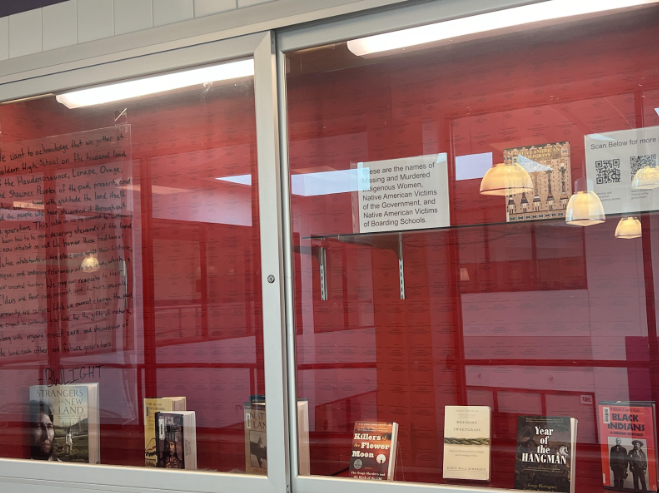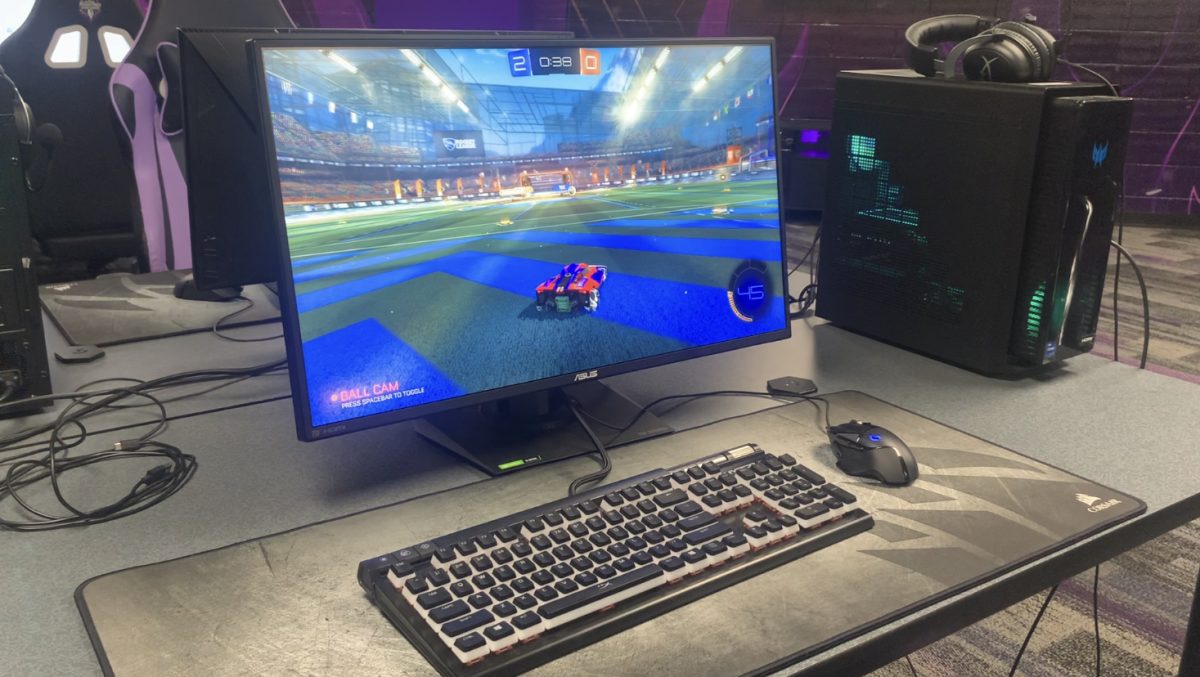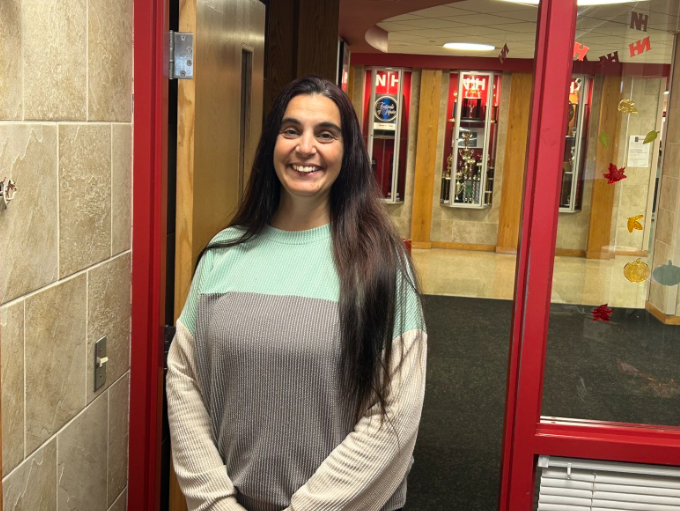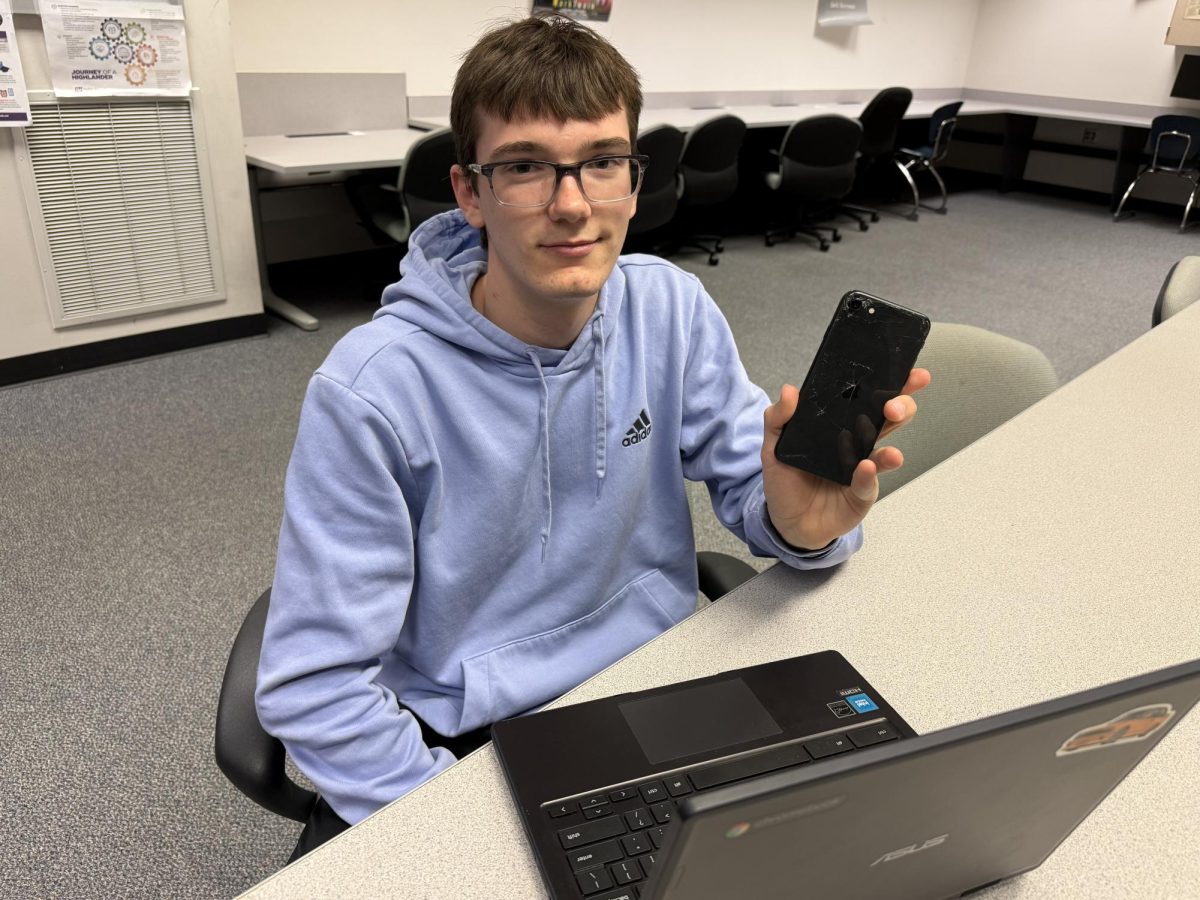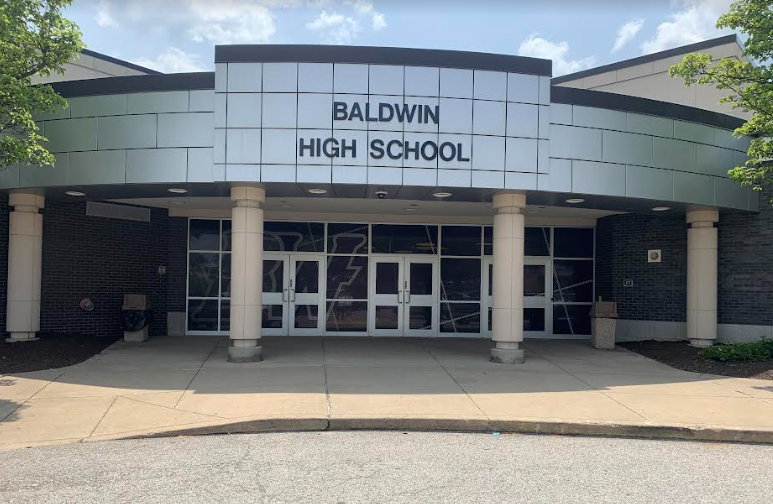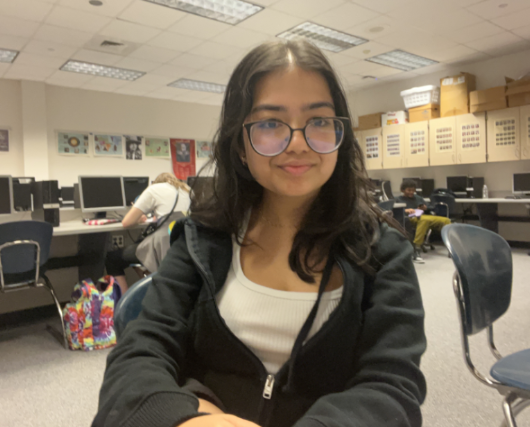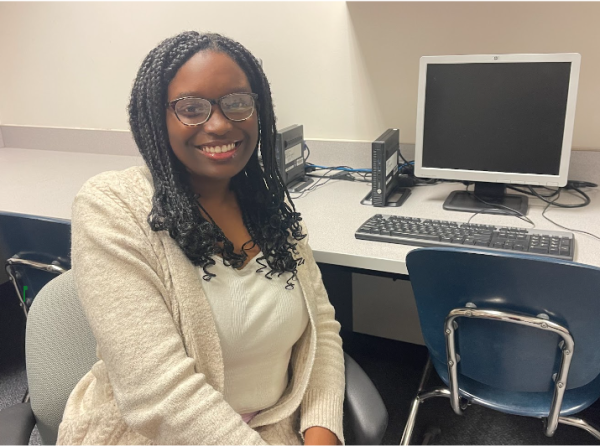Baldwin’s LIGHT Education Initiative group has decorated the library’s display cases to represent missing and murdered Indigenous women, girls, and two-spirit – an Indigenous term for those identifying as both feminine and masculine.
As November marks Indigenous People’s Month, the display case puts a spotlight on the ongoing tragedy that is occurring on and around Native reservations, gifted coordinator Daniel Shaner said.
“There are 928 names in the display case, the earliest from 1972, but the majority from the last five years,” Shaner said. “They are joined by hundreds of Indigenous people who were killed by forces of the U.S. government, and children who were kidnapped and then died in boarding schools that were run by the government and various religious groups.”
After the LIGHT Education initiative decided to decorate the cases, senior Rachael Bonneau chose to use the names and designed the displays.
“Last year there were displays of various books that would represent months. At our October meeting, we decided to have these displays focus on Indigenous American Heritage Month,” Bonneau said. “We decided to focus it on missing and murdered Indigenous women because it is not something that a lot of people are familiar with.”
As the president of the LIGHT group at Baldwin, Bonneau’s goal is to make students more aware of social justice issues and bring to attention injustices that are not always talked about.
“This display is about people who have been forgotten and written out of history, and it is really important to me to give them a space and honor their lives,” Bonneau said.
Bonneau said the names are printed on red paper to represent bloodshed and the death that is being ignored.
“The goal was for it to be something that is very visually striking,” Bonneau said. “In the display case, there is also a hand sign, used to signify the women gone missing. There is also a land acknowledgment of how we are living on stolen land, and a promise to keep that in mind throughout our lives.”
The display is also full of books either written by or about Indigenous Americans.
“These books are significant in that they remind us that our Indigenous neighbors are still here, even though many Americans ignore them and their problems,” Shaner said. “We often look outside of our nation and see and study past and present atrocities, but we tend to ignore those that continue to happen so much closer to home. We still have so much to learn and so many ways we can do better each day.”
In the display case, there are QR codes to various websites that offer more information.

